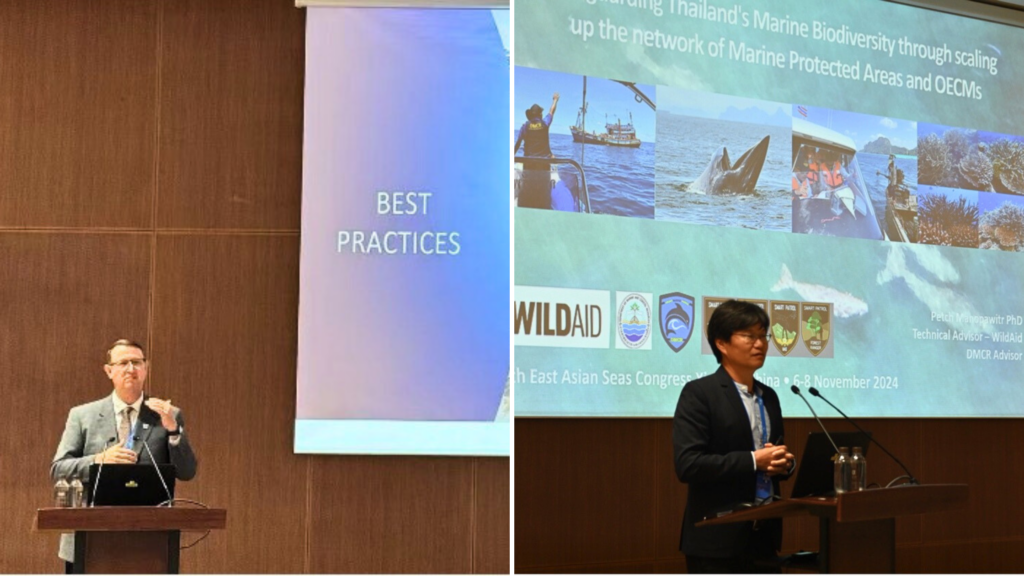
WildAid joined over 800 delegates from 20 countries at the East Asian Seas (EAS) Congress 2024 in Xiamen, China. This triennial gathering is dedicated to advancing sustainable development for the region’s seas and coasts. During the event, we were proud to introduce the Marine Protected Area Patrol Management Framework, a groundbreaking initiative designed to transform marine conservation in China by addressing critical challenges in patrol and enforcement.
Co-hosted by PEMSEA, the Ministry of Natural Resources of China, and the Xiamen Municipal People’s Government, the Congress was a vital platform for fostering innovation, collaboration, and action in marine conservation.
Sharing Expertise on Marine Protected Areas
As part of the Congress, WildAid was invited as a key partner to the Sharing Experiences and Best Practices in Sustainable Management of Marine Protected Areas (MPAs) Workshop, which brought together experts from around the world to exchange insights on strengthening MPA management. Through presentations that covered topics like community engagement, advanced monitoring technologies, and enforcement strategies, the workshop highlighted both the urgency of protecting marine biodiversity and the tangible solutions available to address these challenges.
WildAid Marine Senior Compliance Advisor Gregg Casad introduced the marine program’s global strategy and the best practices that inspired the Framework. In an additional session, WildAid Thailand consultant Dr. Petch presented on the current status of MPAs and other effective area-based conservation measures (OECM) in Thailand.


A Milestone for China’s MPAs
China’s marine ecosystems are a tapestry of diverse habitats stretching all along its Pacific coastline. These waters are home to iconic marine species such as whale sharks, baleen whales, the Indo-Pacific humpback dolphin (Chinese white dolphin), sea turtles, and the narrow-ridged finless porpoise. The coastal areas provide crucial breeding grounds for vulnerable populations of spotted seals and sea turtles.
China has established 352 marine nature reserves, protecting about 93,300 square kilometers of sea. However, the large size, wide distribution, remote locations, and difficulty of conducting patrols have hindered the effectiveness of MPA management.
To address these challenges, WildAid and the First Institute of Oceanography marked a significant milestone at the Congress with the launch of the Marine Protected Area Patrol Management Framework. By addressing challenges like insufficient resources, inadequate training, and enforcement gaps, the Framework provides guidance to improve patrol efficiency and effectiveness.
WildAid China Chief Representative Yu Chong presented the Framework, along with WildAid’s important collaboration with First Institute of Oceanography (FIO) for marine conservation and MPA development in China.
The Framework includes best practices drawn from global MPA management, offering practical solutions in areas such as patrol planning, equipment needs, legal protocols, and ranger training. As WildAid’s research revealed, over 95% of MPA rangers surveyed emphasized the critical importance of regular patrols and institutional support—a call to action the Framework directly addresses.


Conservation is a Team Sport
The launch of the Framework is more than just a milestone; it’s a testament to the power of collaboration. By working alongside the FIO and other partners, we’ve laid the groundwork for more effective MPA management in China—a critical step in safeguarding marine biodiversity for future generations.
Stay in touch and get the latest WildAid updates.
SIGN UP